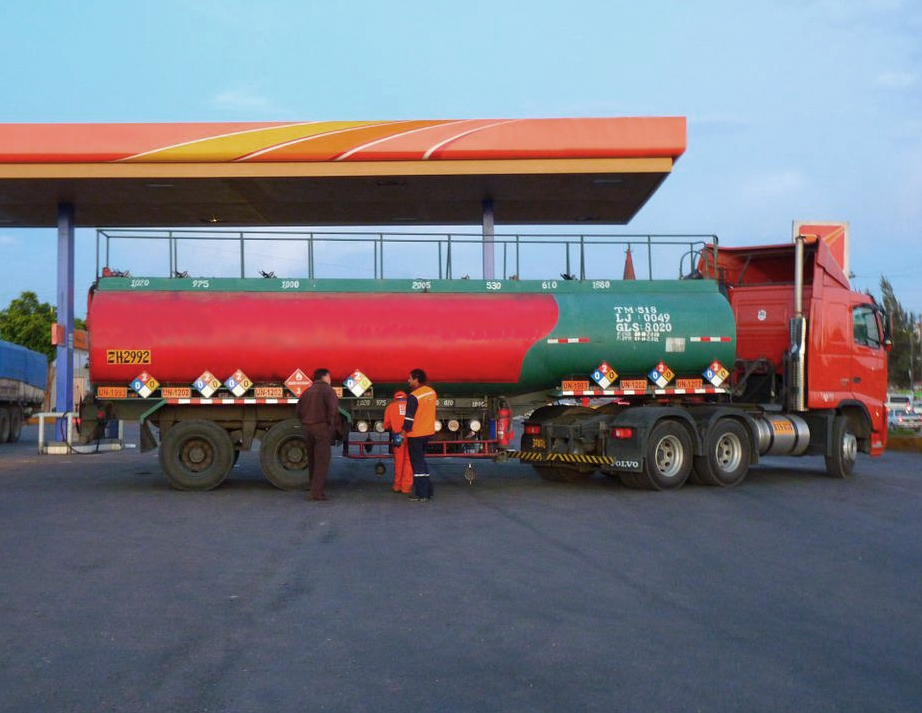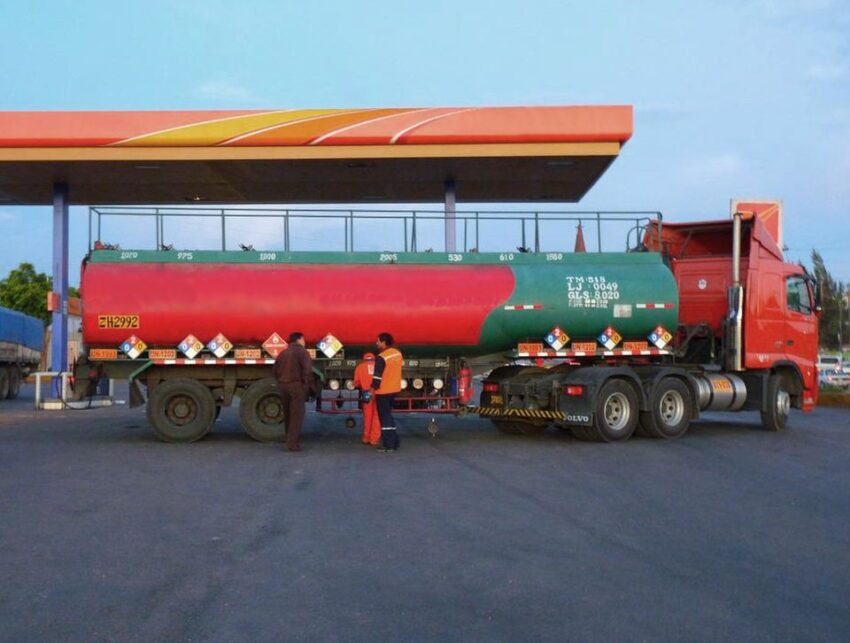Following the war in Ukraine, fuel costs have risen at an unprecedented rate. This has posed a stiff challenge for the road freight shipping industry which is now forced to run on smaller capital and tighter profit margin. Independent freight operators and small trucking companies in the US are the hardest hit by the hike in fuel prices.
The cost of diesel in the USA has risen by over $1.10 / gallon in the weeks following the war in Ukraine. The Russian invasion of Ukraine has seriously destabilized the international energy market and resulted in a surge in crude oil prices. Not just in the USA, but countries around the world are having to deal with a massive hike in fuel prices. The inevitable outcome of the surging fuel cost is increased pressure on the freight forwarding industry in general and the trucking sector in particular. The increased oil prices are leading to additional expenditure for trucking operations. As a result, the carriers are having to use fuel surcharges to cover the high diesel prices.
In today’s blog, we are going to talk about the implications of the hike in fuel prices on the road freight shipping industry with a special focus on the trucking sector.

Small trucking companies hit real hard by the rise in fuel prices
The small trucking companies are having to bear the brunt of the gas price hike. This is because the larger carriers usually have lines of credit along with working capital. This provides them with a much-needed financial cushion. Therefore, even if they receive payment more than a month after moving the goods, they can easily make a good profit within a couple of months. However, even if a small carrier imposes surcharges, they don’t receive the payment for 30-45 days. As a result, they need to float that difference in the interim period which can be bad for their businesses.
It goes without saying that it is the customers who ultimately have to pay a higher price for their products due to the rise in trucking expenses. Additionally, the rise in fuel prices coincided with a time when Americans were already having to deal with rising inflation.
The ongoing crisis might force several small trucking companies to shut down in the coming months
Several small trucking companies that are owner-operators are risking a shutdown of their business due to the ongoing crisis. This is because the small companies cannot always negotiate a fuel surcharge that could permit them to pass on the additional oil expenses to a shipper’s freight bill. As a result, they are the most vulnerable parties in case of a rise in oil prices. Several owner-operators in the USA work under contracts that allows them to get a flat fee for moving the goods without surcharges.
According to Owner-Operator Independent Drivers Association the small trucking companies approximately buy 80,000 gallons of diesel per year. Therefore, it is only a matter of time before the surging oil prices force some of these owner-operators to quit their businesses. It doesn’t come as a surprise that many trucking companies are downsizing their companies to stay in the business. An owner-operator in the Northeast, Sadaya Morris states that her fuel costs rose from $250 a week to around $400 just after the war started. This forced her to shift her business away from the freight forwarders. She is now working directly with the customers so that she can pass along the fuel surcharges.
Efforts from the Biden administration to mitigate the crisis
Following the crisis, US President Joe Biden has announced a plan of releasing around 1 million barrels of oil per day from the Strategic Petroleum Reserve. The administration plans to carry this out for 6 months to mitigate the fuel price hike. If carried out as planned, this move will be the largest release of oil reserves in the history of the US. The first barrels will most probably hit the market by the month of May.


